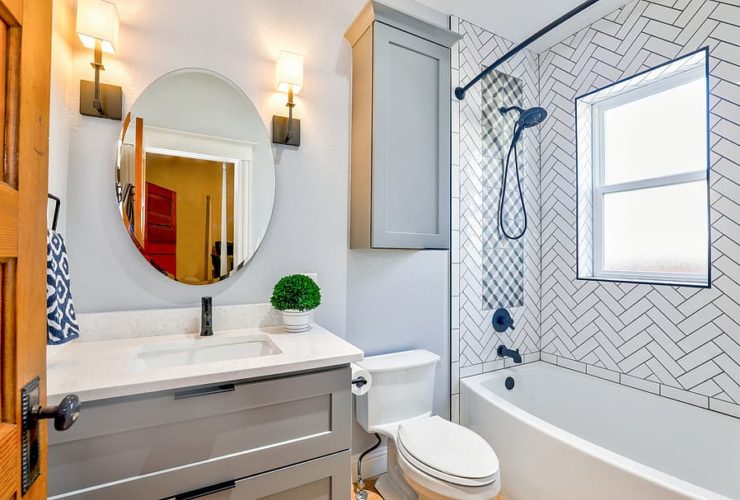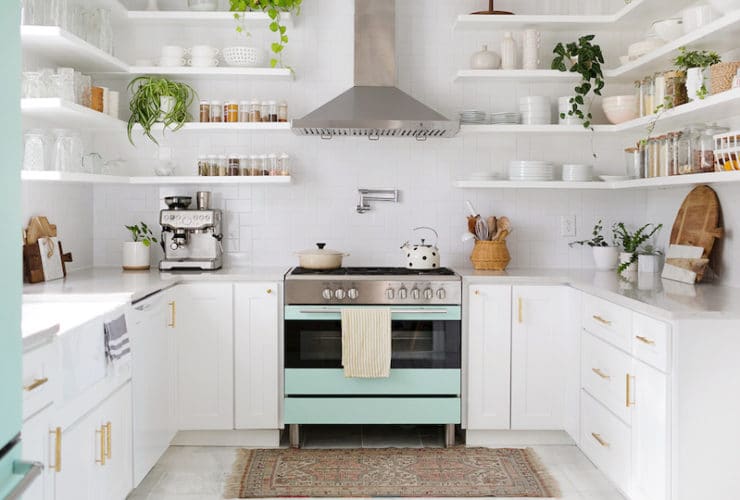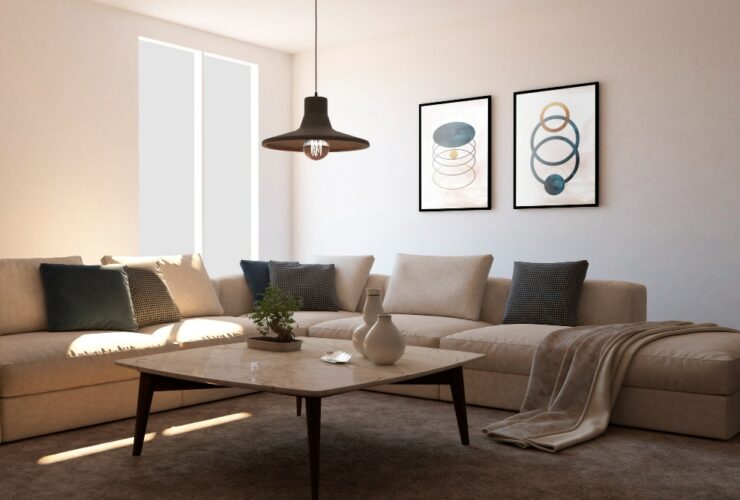Open-concept living has been a symbol of modern home design for over a decade. The idea of merging living spaces into one cohesive area has appealed to many homeowners and designers alike. As we are approaching 2025 however, the question arises: Is open-concept living going out of style? Let’s check with VKB experts about the factors influencing this trend and what homeowners and designers should consider.
The Rise of Open-Concept Living
What is Open-Concept Living?
Open-concept design refers to a layout where walls and barriers between common areas, such as the kitchen, living room, and dining room, are removed. This creates a spacious, airy environment that allows for seamless movement and interaction.
Historically, open-concept living gained popularity in the mid-20th century as a response to the desire for more flexible and social living spaces. The trend was further fueled by the rise of minimalist design and the need for homes to adapt to modern lifestyles.
Benefits of Open-Concept Designs
One of the primary benefits of open-concept living is space optimization. By removing walls, natural light can flow freely throughout the space, making it feel larger and more inviting. This design also enhances social interaction, as family members and guests can easily communicate and engage with each other, regardless of where they are in the common area.
Flexibility is another advantage. Open-concept spaces can be easily adapted to various functions, whether it’s hosting a dinner party, setting up a home office, or creating a play area for children. Successful remodels, such as those featured on home improvement shows, often showcase the transformative power of open-concept designs.
Current Trends Influencing Home Design in 2025
Changing Preferences in Home Layouts
As we move into 2025, there is a noticeable shift in home layout preferences. While open-concept living remains popular, there is a growing trend towards creating private, multifunctional spaces. Homeowners are increasingly valuing the ability to have distinct areas for work, relaxation, and entertainment.
Lifestyle changes, such as the rise of remote work and the need for dedicated home offices, are driving this shift. People are looking for ways to balance open spaces with areas that offer privacy and quiet.
Impact of Technology on Home Design
Technology is playing a significant role in shaping home design trends. The integration of smart home technologies, such as automated lighting, climate control, and security systems, is influencing layout preferences. These technologies allow for greater control and customization of living spaces, making it easier to create environments that suit individual needs.
For example, smart partitions and movable walls can be used to create flexible spaces that can be adjusted based on the time of day or activity. This adaptability is becoming increasingly important as homeowners seek to maximize the functionality of their homes.
Pros and Cons of Open-Concept Living
Advantages of Open-Concept Living
The benefits of open-concept living are well-documented. In addition to space optimization and enhanced social interaction, open-concept layouts can make a home feel more modern and stylish. The lack of walls allows for creative design choices, such as statement furniture pieces and bold color schemes.
Real-life examples of open-concept spaces enhancing daily living include homes where the kitchen island serves as a central hub for cooking, dining, and socializing. These spaces often become the heart of the home, fostering a sense of togetherness and community.
Challenges and Drawbacks
However, open-concept living is not without its challenges. Privacy concerns are a common issue, as the lack of walls can make it difficult to find quiet, secluded areas. Noise can also be a problem, as sounds from the kitchen or living room can easily travel throughout the space.
Maintaining organization in an open-concept home can be challenging as well. Without distinct boundaries, it can be difficult to define specific areas for different activities. This can lead to clutter and a lack of cohesion in the overall design.
Is Open Concept Going Out of Style?
Evidence and Expert Opinions
To determine whether open-concept living is going out of style, it’s essential to look at current trends and expert opinions. Survey data and studies on home design trends indicate that while open-concept layouts remain popular, there is a growing interest in more segmented spaces.
Interior designers and architects have mixed opinions on the future of open-concept living. Some believe that the trend will continue to evolve, incorporating elements of both open and closed layouts. Others predict a return to more traditional designs, with separate rooms for different functions.
The Evolution of Design Preferences
Current trends suggest that home design preferences are becoming more diverse. While open-concept living is still favored by many, there is a noticeable shift towards hybrid designs that offer the best of both worlds. These designs blend open spaces with private areas, providing flexibility and functionality.
Predictions for home design trends in the near future include a focus on adaptable spaces that can be easily reconfigured. This approach allows homeowners to create environments that suit their changing needs and lifestyles.
Alternatives to Open-Concept Living
Traditional Layouts and Their Revival
Traditional layouts, characterized by separate rooms for different functions, are experiencing a revival. These designs offer distinct advantages, such as increased privacy and better noise control. Modernized versions of traditional layouts often incorporate open elements, such as wide doorways and large windows, to maintain a sense of openness while providing defined spaces.
Examples of these layouts include homes with semi-open kitchens that can be closed off with sliding doors or curtains. This allows for flexibility in how the space is used, depending on the occasion.
Hybrid and Multi-Functional Spaces
Hybrid and multi-functional spaces are becoming increasingly popular as homeowners seek to maximize the utility of their homes. Concepts like sliding doors, partition walls, and convertible rooms offer the flexibility to create different configurations based on the time of day or activity.
These designs provide the benefits of open-concept living while addressing some of its drawbacks. For example, a living room can be transformed into a home office during the day and reverted to a social space in the evening.
How to Decide What’s Right for Your Home
Assessing Your Needs and Lifestyle
When deciding between open-concept and other layouts, it’s essential to consider your needs and lifestyle. Factors such as the size of your home, the number of occupants, and your daily routines should all play a role in your decision.
Tips for evaluating the best design for your space include considering how you use each area of your home and what activities you prioritize. For example, if you frequently host gatherings, an open-concept layout may be ideal. However, if you need quiet spaces for work or relaxation, a more segmented design might be better.
Working with a Designer
Consulting with a professional designer can help you navigate the various trends and make informed choices. Designers can tailor a layout to your specific needs, ensuring that your home is both functional and stylish.
Working with a designer also allows you to explore different options and find creative solutions to any challenges you may face. They can provide valuable insights and recommendations based on their expertise and experience.
Conclusion
In conclusion, while open-concept living remains popular, there is a growing trend towards more segmented and flexible home designs. The future of home design is likely to incorporate elements of both open and closed layouts, providing homeowners with the best of both worlds.
As you consider your design preferences, it’s essential to reflect on your needs and lifestyle. Consult with our team at VKBKitchenAndBath to discuss about your dream home design and remodeling ideas, and join our active social media community at vkbkitchenandbath for our daily updates, news, and stay updated with more design trends on a daily basis. We’re here to make a positive difference in your life!




